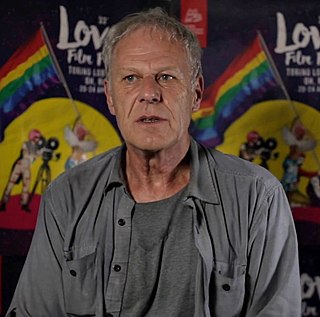A Quote by Roland Allen
I have a profound belief in the power of the Sacraments. I believe that in a Divine way the use of them teaches the teachable their inward meaning and therefore I think we need be in no hurry to attempt to teach new converts all that we think we know about them.
Related Quotes
People don't just get upset. They contribute to their upsetness. They always have the power to think, and to think about their thinking, and to think about thinking about their thinking, which the goddamn dolphin, as far as we know, can't do. Therefore they have much greater ability to change themselves than any other animal has, and I hope that REBT teaches them how to do it.
When geologists announced the beginning of a new geological epoch, the Anthropocene, humans destroying the environment, one of the main things they pointed to is the use of plastics in the earth. We don't think about it, but it has a tremendous effect. But these are things you don't see right in front of your eyes. You need to think about them a little, to see what the consequences are. It's easy to put them aside, and the media don't talk about them.
To think that because those who wield power in society wield in the end that of government, therefore it is of no use to attempt to influence the constitution of the government by acting on opinion, is to forget that opinion is itself one of the greatest active social forces. One person with a belief is a social power equal to ninety-nine who have only interests.
When you want to teach children to think, you begin by treating them seriously when they are little, giving them responsibilities, talking to them candidly, providing privacy and solitude for them, and making them readers and thinkers of significant thoughts from the beginning. That’s if you want to teach them to think.
The only way to resonate at a level that persuades is to know who you are addressing. If it's true that the Audience is the hero, you need to spend time thinking about them. Really getting to know them to the point it feels like they are a friend. May times we picture our audience as a large clump of strangers. Instead, you need to picture them as individuals standing in line to have a personal conversation with you. It's easy to persuade a friend, you need to think about your audience until you know them as a friend.
With all the conceptual truths in the universe at His disposal [Jesus] did not give them something to think about together when He was gone. Instead, He gave them concrete things to do - specific ways of being together in their bodies - that would go on teaching them what they needed to know when He was no longer around to teach them Himself ... "Do this" He said - not believe this but do this - "in remembrance of me.
When you coach and teach leadership, most people think about them. It's like you're the leader and how do you influence them. Clearly, leaders do take their followers, their flock, their enterprise, their business - whatever - hopefully to a better place. But I think the foundation of what makes really great leaders is they lead themselves, and they're conscious about knowing themselves and coaching and leading themselves in a very profound way. The simplest of us talk to ourselves. The question is, "Do we really lead ourselves?"
My view of university training is to unsettle the minds of young men, to widen their horizons, to inflame their intellects. It is not a hardening, or settling process. Education is not to teach men facts, theories, or laws; it is not to reform them, or amuse them, or to make them expert technicians in any field; it is to teach them to think, to think straight if possible; but to think always for themselves.
So what is the difference between "power thinking" and "positive" thinking? The distinction is slight but profound. To me, people use positive thinking to pretend that everything is rosy, when they really believe that it's not. With power thinking, we understand that everything is neutral, that nothing has meaning except for the meaning we give it, and that we are going to make up a story and give something it's meaning.
As the base rhetorician uses language to increase his own power, to produce converts to his own cause, and to create loyal followers of his own person - so the noble rhetorician uses language to wean men away from their inclination to depend on authority, to encourage them to think and speak clearly, and to teach them to be their own masters.






































